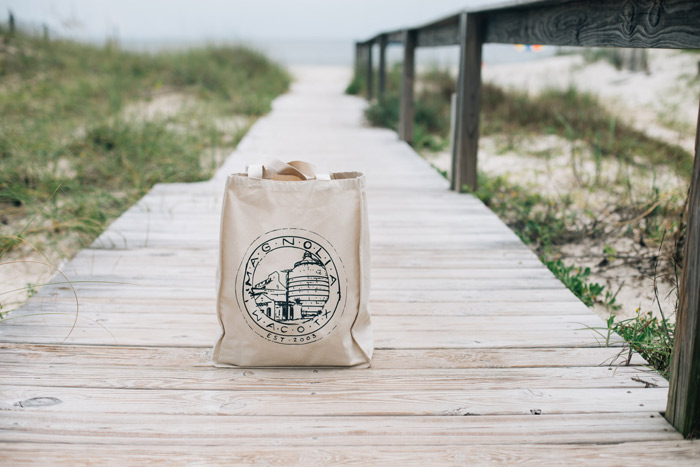
| 双语新闻 Bilingual News | 双语对照阅读 分级系列阅读 智能辅助阅读 在线英语学习 |

| 双语新闻 Bilingual News | 双语对照阅读 分级系列阅读 智能辅助阅读 在线英语学习 |
| [英文] [中文] [双语对照] [双语交替] [] |

| Cotton bags have become a means for brands, retailers and supermarkets to telegraph a planet-friendly mindset – or, at least, to show that the companies are aware of the overuse of plastic in packaging. |
| "There’s a trend in New York right now where people are wearing merch: carrying totes from local delis, hardware stores or their favourite steakhouse,” says designer Rachel Comey. |
| So far, so Earth-friendly? Not exactly. It turns out the wholehearted embrace of cotton totes may actually have created a new problem. |
| An organic cotton tote needs to be used 20,000 times to offset its overall impact of production, according to a 2018 study by the Ministry of Environment and Food of Denmark. That equates to daily use for 54 years – for just one bag. |
| Cotton is water-intensive, and figuring out how to dispose of a tote in an environmentally low-impact way is not nearly as simple as people think, according to Travis Wagner, an environmental science professor at the University of Maine. |
| You can’t, for example, just put a tote in a compost bin, and only 15 percent of the 30 million tons of cotton produced every year actually makes its way to textile depositories. Even when a tote does make it to a treatment plant, most dyes used to print logos onto them are PVC-based and thus not recyclable; they’re “extremely difficult to break down chemically,” said Christopher Stanev, the co-founder of Evrnu, a Seattle-based textile recycling firm. Printed patterns have to be cut out of the cloth; Mr. Stanev estimates 10 to 15 percent of the cotton Evrnu receives is wasted this way. |
 |
| That’s not to say cotton is worse than plastic, or that the two should even be compared. While cotton can use pesticides and has dried up rivers from water consumption, lightweight plastic bags use greenhouse gas-emitting fossil fuels, are not biodegrade and clog up the oceans. |
| Buffy Reid, of the knitwear label &Daughter, halted production of her cotton bags in April this year. Aesop is converting the composition of its shopping bags to a 60-40 blend of recycled and organic cotton. “It will cost us 15 percent more,” says Suzanne Santos, the chief customer officer of Aesop, but “it reduces water by 70 percent to 80 percent”. |
| Some brands are turning to other textile solutions. Designer Ally Capellino recently swapped cotton for hemp, while Hindmarch introduced a new version of her original tote, this time made from recycled water bottles; Nordstrom also uses similar bags in its stores. |
| In the end, the simplest solution may be the most obvious. “Not every product needs a bag,” Comey says. |
OK阅读网 版权所有(C)2017 | 联系我们